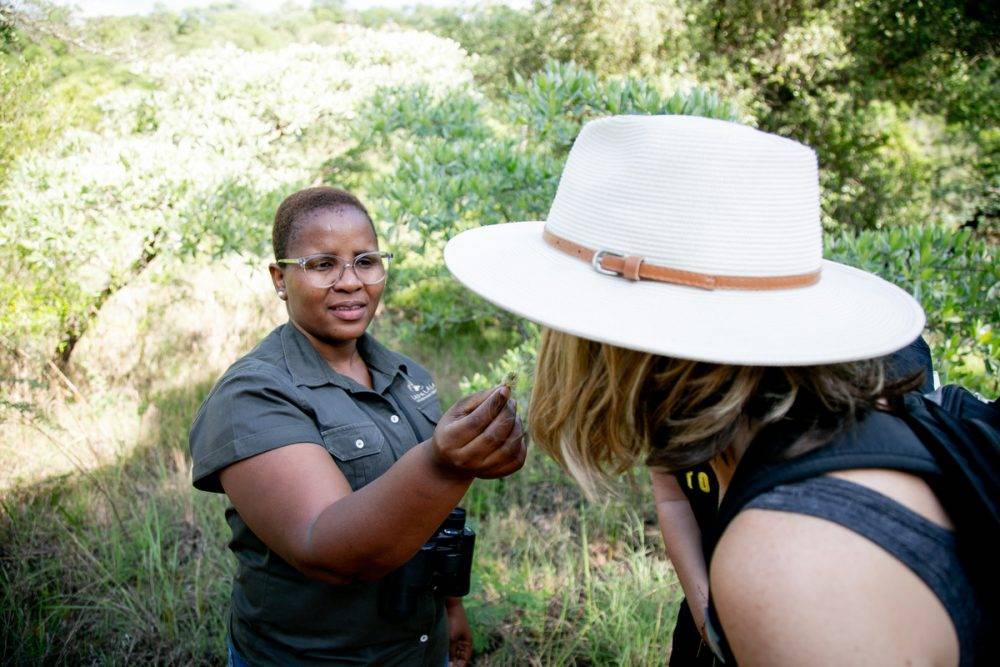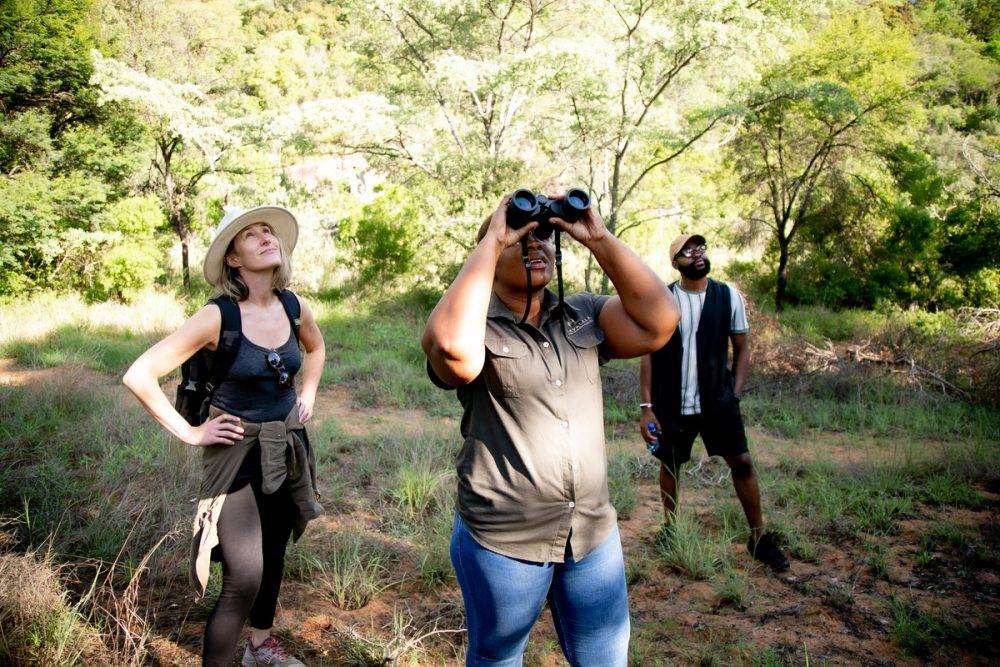Lizzy Litshani teaches about conservation through projects that empower the community surrounding her school
Lizzy Litshani’s relationship with nature and conservation started in 2002 on World Environment Day when her grade 11 class at Mashamaite Secondary School went to Lapalala Wilderness in Limpopo on a field trip.
She lived in a neighbouring village called Ga-Mushi, and saw the fence of the reserve every day, but being on the inside was a life-changing experience for the young Litshani.
“Coming to Lapalala was a very big opportunity for me because the moment we went through the gates, I realised that there is so much beauty inside, so much to be explored. Coming from such a small world, that trip broadened my horizons,” Litshani says.
On the bus back home, she reflected on the trip. All she knew was she wanted to go back to Lapalala as she saw herself doing nothing else — and so another name was added to the list of women who are guardians of the environment.
“Being a woman in conservation means I have to compete with men, which is very exciting,” says Litshani, who is now the community outreach coordinator and environmental educator at Lapalala Wilderness School,
She says the field is dominated by men, however, the women who work in it make a big difference and should be celebrated.
“This sector requires one to be physically strong because nature is powerful. I am saying to women who want to be part of this sector that we are capable and worthy of being here.”
Litshani is involved in environmental conservation with her main focus being on teaching about the trees and rivers in Lapalala. She does this partly through clean-up programmes, after which they educate the community about their environment and keeping it clean.
 Lizzy Litshani is involved in environmental conservation with her main focus being on teaching about the trees and rivers in Lapalala.
Lizzy Litshani is involved in environmental conservation with her main focus being on teaching about the trees and rivers in Lapalala.
Where it all began
After high school, Litshani was afforded the opportunity to return to Lapalala through a government youth learnership programme where her training included taking tourists on guided walks and drives.
“There were about 700 people who applied for this programme and Lapalala wanted only six. I knew I was going to be one of the top six. I put it out to the universe and the universe did what it does best — and here I am today!”
After the programme, Litshani was absorbed as a permanent employee at Lapalala as an environmental educator. She has climbed up the ranks at the organisation, working on projects that empower the communities surrounding the wilderness school.

Passion projects
There are a few projects that Litshani is passionate about and she makes sure they are co-ordinated in a way that has a long-term impact on the surrounding communities.
One of these is a beekeeping project that has sparked craftsmanship and entrepreneurship among community members. The wilderness school buys the honey from them, helping people make a living.
“I like this project because a lot of people go to the city for opportunities, whereas they can create their opportunities, and a local economy, here, to alleviate poverty,” she says.
But the project that is closest to her heart is the community reading clubs.
“A lot of the children in our area do not know how to read and that breaks my heart. We give them books to learn about their environment and how to conserve it but they cannot read them,” she says.
A lot of the time, parents struggle to read, meaning there is no one to help the children with homework.
The wilderness school had to come up with a way to fix this situation and the reading clubs were the solution. Through the programme, young people from local villages are tasked with going to early-childhood development centres, schools and homes to teach reading.
“We are trying to do our part in making sure there is no ripple effect of young people in our community dropping out and having their dreams come to nothing.”
Litshani says she and many other women in conservation are ensuring that the fruit of their labour is seen in the communities they work in, especially among the young people.
“Unfortunately, we do not live forever, so while we are still here, we will teach about conservation, so those who come after us do the same,” Litshani says.
Lesego Chepape is a climate reporting fellow, funded by the Open Society Foundation for South Africa